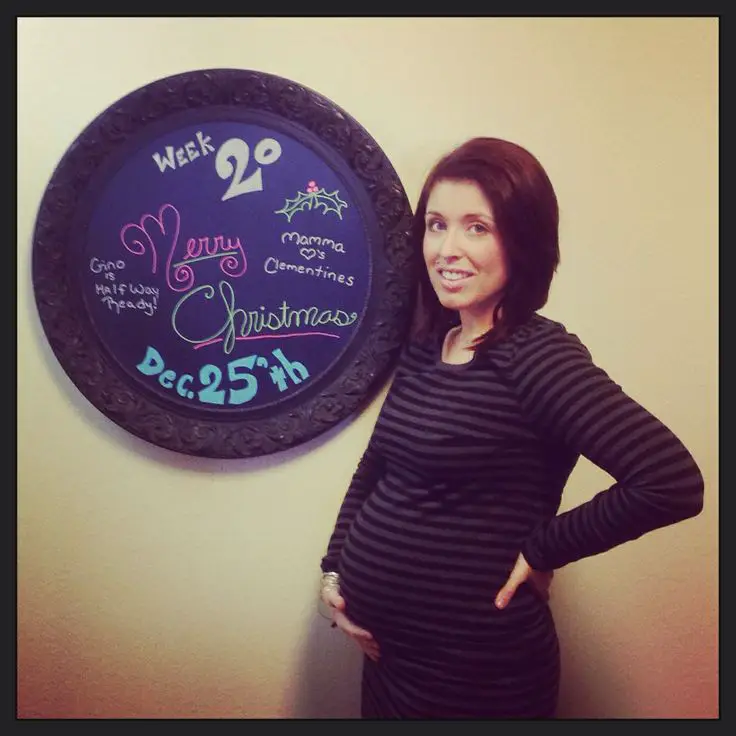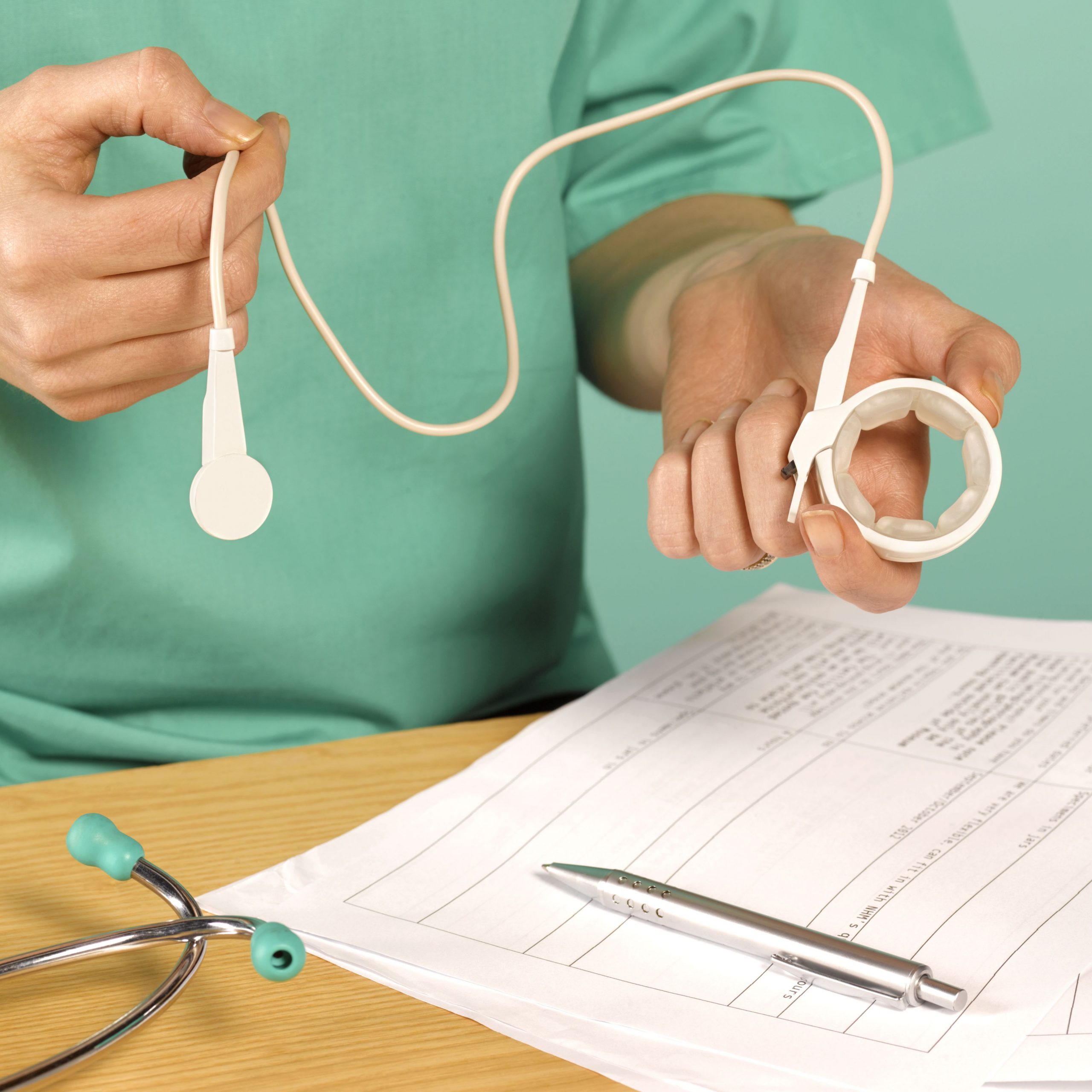What Are The Biggest Risks Of Pregnancy After Gastric Bypass
The biggest risk of all is the nutritional needs of baby and mom. The body is rerouted during the surgery and some of the intestine is removed. This means there is less intestine for the food to travel through and thus less time for absorption. Most of the time, adding more of the same vitamin will solve this problem.
Other complications can include weight gain, anemia, low birth weight baby and increased need for C-Section.
Can I Take Normal Prenatal Vitamins
Yes, women who have undergone gastric bypass can take normal prenatal vitamins. The surgery does, however, limit the absorption of these vitamins which is another reason for the continuing blood work. Some gastric bypass clinics offer a bariatric pregnancy kit complete with all the vitamins needed to keep both mom and baby healthy during the pregnancy. The bariatric surgeon will be able to guess how much of the prenatal vitamin will be absorbed and offer insight into whether more than one should be taken every day.
Are The Pregnancy Screenings The Same
No, the pregnancy screenings are not the same for gastric bypass expectant mothers and mothers who have not had the surgery. The major difference is in the number of blood tests needed and the GTT. The GTT is the glucose tolerance test. Due to the nature of how gastric bypass is performed, the patient will not be able to drink the fluid needed to perform the test.
The blood tests, on the other hand, will be scheduled more often. These tests will not necessarily pertain to the pregnancy as much as they are offering a look inside the nutritional effects of the pregnancy on the body. If there is a deficiency beginning, the obstetrician will be able to find out early enough to treat the condition.
Read Also: How To Know Pregnancy Month
Monitoring Your Caloric Intake During Pregnancy After Bariatric Surgery
Because bariatric surgery involves removing and rearranging portions of the stomach, you will experience significant changes in the way you consume food.
Take the biliopancreatic diversion procedure, for example, a malabsorptive procedure that restricts both the number of nutrients and calories you can absorb into your body.
Patients of other types of bariatric surgeries, such as gastric banding or Roux en-Y gastric bypass surgery, also eat less but rarely have nutritional complications .
To ensure your baby is getting the nutrition it needs to develop properly, speak with your doctor. Furthermore, dont worry about eating less after your surgery the baby will take what it needs from the mother.
Contraception And Preconception Counseling

Contraception and preconception counseling should be provided for all women of reproductive age who are undergoing bariatric surgery. Counseling on the use of contraceptives is especially important in adolescents because pregnancy rates following bariatric surgery are twice those in the general adolescent population . The risk of oral contraceptive failure is increased after bariatric surgery, so nonoral administration should be considered.
After bariatric surgery, a woman should wait 12 to 24 months before conceiving so that the fetus is not affected by rapid maternal weight loss and so that the patient can achieve her weight-loss goals. If pregnancy occurs before this recommended time frame, closer surveillance of maternal weight and nutritional status may be beneficial, and serial ultrasound monitoring of fetal growth should be considered.
Recommended Reading: How Can I Feel If I M Pregnant
The Connection Between Weight And Pregnancy
Weight loss can have a positive impact on a womans reproductive health, both before and after conception. For example, hormonal imbalances caused by obesity can make it more difficult for women with excess weight to become pregnant. Changes in your natural hormone levels can lead to insulin resistance, which, if left untreated, can eventually prevent your body from producing enough viable eggs.
The negative health effects of obesity like diabetes and high blood pressure are especially dangerous for pregnant women. Insulin resistance caused by excess weight puts pregnant women at greater risk for gestational diabetes. Pre-eclampsia, a complication that damages the liver and kidneys, is associated with high blood pressure. Some women develop these conditions during pregnancy regardless of how much they weigh, but obese women are often at a higher risk.
The best way for women to combat complications like these is to achieve and maintain a healthy weight before getting pregnant. Losing weight, with the help of bariatric surgery, before having children makes for a safer and healthier journey to motherhood.
Who Qualifies For Gastric Bypasses
Not everyone is able to get a gastric bypass. It is not intended to help only a small minority of individuals who meet a strict criterion. Generally, doctors will not approve someone for the procedure unless their bod mass index is 40 or higher. Or, in other cases, a person with a BMI between 35 to 39.9 may be approved if they have other health issues stemming from their weight. This can include diabetes, high blood pressure, or sleep apnea. It is rare but not unheard of for people with a BMI between 30 to 34 to get the procedure, but only if they have serious weight-related health issues.
Doctors also ensure that patients are committed to leading a healthier lifestyle post-surgery in order to ensure the procedure will be most effective. This often includes follow-up appointments not only with the specialist but other professionals, like nutritionists.
Recommended Reading: When Am I Most Likely To Get Pregnant
Nhs Weight Loss Surgery
Weight loss surgery is available on the NHS if:
- you have a body mass index of 40 or more, or a BMI between 35 and 40 and an obesity-related condition that might improve if you lost weight
- youâve tried all other weight loss methods, such as dieting and exercise, but have struggled to lose weight or keep it off
- you agree to long-term follow-up after surgery such as making healthy lifestyle changes and attending regular check-ups
Speak to a GP if you think weight loss surgery may be an option for you. If you qualify for NHS treatment, they can refer you for an assessment to check surgery is suitable.
You can also pay for surgery privately, although this can be expensive.
Read Also: No Discharge Early Pregnancy Symptom
To Discharge From Employment Got Canned For Being Late So Often 3 Slang :
Synonyms of can see definition can 1 of 2 verb 1 as in to stop slang to bring to an immediate end can the chatter, or i’m kicking you out of this library synonyms & similar words relevance stop cease halt end quit conclude delay discontinue break suspend lay off cut off finish drop cut out call shut off suspend complete Canning transitive verb 1 a :
Also Check: Can You Get Pregnant At The Age Of 14
Pregnancy After Gastric Bypass
Obesity has been associated with reduced fertility. Gastric bypass surgery is a common procedure performed for those with severe obesity and has been shown to increase fertility in both men and women. This can bring about the question, is getting pregnant after a gastric bypass safe?
There are many factors to consider when undergoing gastric bypass, such as gastric bypass surgery cost or the weight requirement for gastric bypass. For many women, pregnancy can be another important consideration.
In this article, well explore the questions you might have about becoming pregnant after gastric bypass surgery.
What This Article Covers:
What Happens During A Gastric Sleeve Surgery
This surgery removes a large portion of the stomach, which leaves a sleeve or tube shaped stomach. This smaller stomach can hold less food and makes you feel full more quickly. The surgery also involves removing the section of the small intestine attached to the stomach. This reduces the number of absorbable calories and nutrients from food.
Post the surgery you will have to follow a strict diet and exercise plan. You will need to eat small, frequent meals and avoid high-calorie foods. You should avoid alcohol and carbonated beverages.
Read Also: Are Tums Safe For Pregnant Women
Increased Risk Of Minor Complications
Below is a list of complications mothers are more likely to suffer if they have an obese pregnancy vs. a pregnancy after weight loss surgery:
- Chest Infections Almost 10 times more likely
- Headaches and Heartburn More than 2 times more likely
- Carpal Tunnel Syndrome More than 3 times more likely to have
- Symphysis-Pubis Dysfunction More than 3 times higher risk
- Depresssion Significantly more likely
What Kind Of Supplements Are Needed When Pregnant After Bariatric Surgery

There are specific vitamins and minerals that your body needs to function properly. Bariatric surgery patients are required to take supplements after surgery for life to obtain all they need since they will not be able to get them all from their diet.
During pregnancy, women normally need to take extra vitamins to ensure both mother and baby are getting what they need. If you are pregnant after weight loss surgery, it is even more important that you take vitamins and minerals that are specially formulated for pregnant women.
Your bariatric weight loss team of doctors will help determine which supplements are best for you and how much you will need daily. If you become pregnant after a gastric bypass, gastric sleeve, duodenal switch, etc, you may need regular blood tests each trimester, to check your nutrient levels.
The supplements you will need may include:
- Vitamins A, D, E, and K
Also Check: Can I Get Dental Work Done While Pregnant
Pregnancy And Gastric Bypass Surgery
There is a whole new generation of women facing new issues regarding pregnancy. These women have all undergone gastric bypass surgery in order to lose weight. As the body is less healthy when obese, the fact that these women have chosen gastric bypass is a testament to their desire for good health. When the thought of pregnancy comes to mind, they often have questions regarding their surgery, their pregnancy and the relationship between the two.
How Does Weight Loss Surgery Affect Fertility
It may seem like a strange concept to think about having surgery to lose weight before getting pregnant where you are going to gain weight. It does make sense when you understand some of the ways obesity messes up the natural order of our bodies.
Did you know that obesity triples the risk of infertility? As women, our bodies require a fine-tuned hormonal balance to keep things running smoothly such as our menstrual cycles. Obesity creates abnormal hormone levels and can lead to polycystic ovarian disease , irregular ovulation cycles, and fertility issues. Losing weight can even out these hormone imbalances and surprisingly losing even 5% of your excess weight can help boost your fertility.
Another interesting fact that is noteworthy obesity can affect fertility in men too. Obesity can cause testosterone levels to drop and create fertility problems in men. Studies show that among couples who are experiencing fertility issues, 30% are obesity-related. It makes sense, that your chances of having a healthy pregnancy and a healthy baby begin with healthy parents.
Also Check: Could You Get Pregnant On Birth Control Shot
Contraception And Pregnancy Planning After Bariatric Surgery
Women accounted for 83% of bariatric procedures in the reproductive age group between 1998 and 2005.9 Future pregnancies were important to 30% of women planning to have bariatric surgery in one survey. 10 Infertility problems, one of the obesity related co-morbidities, commonly improve after weight loss from bariatric surgery procedures. 11–14 As such, clinicians who specialize in womens health should not only be familiar with the surgery and understand the long-term goals for weight loss, but also provide appropriate counseling regarding contraception and pregnancy after bariatric surgery, regardless of whether they desire a future pregnancy. The optimal time for this counseling is prior to the bariatric surgery.
Chronic medical diseases such as obesity create barriers to contraceptive counseling. Specific to bariatric surgery, studies suggest that oral contraception may not be as effective after bariatric surgery as a result of decreased absorption.15–18 Continued obesity after bariatric surgery also plays a role in planning contraception.19 Unfortunately, current practice is limited due to lacking evidence regarding the effectiveness and safety of contraception after bariatric surgery, but it is unlikely that there is a significant decrease in efficacy for oral contraceptive pills according to a recent systematic review.20
Dividing The Small Intestines
After creating the new stomach pouch, the surgeon will make an incision in the small intestines, dividing it into two parts. The lower part, called the jejunum, will be pulled up and connected to the newly formed stomach pouch. The remaining upper part, called the duodenum, will be attached to a lower part of the jejunum .
Don’t Miss: How Do Contraceptive Pills Prevent Pregnancy
Acog Guidelines On Pregnancy After Bariatric Surgery
Am Fam Physician. 2010 Apr 1 81:905-906.
Guideline source: American College of Obstetricians and Gynecologists
Literature search described? No
Evidence rating system used? Yes
Available at:
As the prevalence of adult obesity increases in the United States, physicians are more often caring for patients who have undergone or who are considering bariatric surgery. Counseling and treating women who become pregnant after bariatric surgery present unique challenges. Although outcomes are generally good, nutritional and surgical complications can arise. The American College of Obstetricians and Gynecologists recently reviewed the available evidence on pregnancy outcomes after bariatric surgery.
Obesity is associated with reduced fertility, primarily because of oligo-ovulation and anovulation. In women who become pregnant, obesity confers increased risks of gestational diabetes mellitus, preeclampsia, cesarean delivery, and infectious morbidity. Operative morbidity is also increased, and obese women are less likely to have successful vaginal birth after a previous cesarean delivery.
Rates of congenital anomalies after bariatric surgery are not increased compared with the general population. There may be a trend toward lower birth weights in infants of women who have undergone bariatric surgery maternal weight gain during pregnancy seems to be a predictor of birth weight.
You May Like: Is It Safe To Use Vagisil During Pregnancy
It Can Be Hard To Gain The Right Amount Of Weight
If you’ve gone through surgery in order to lose weight and likely experienced a change in how you feel about your body it can be challenging to see your belly growing rather than shrinking.
Try to get comfortable with the idea that this is the time for you to gain, not lose weight. It’s important to gain an appropriate amount of weight to have as healthy a pregnancy as possible.
After bariatric surgery, many women struggle to gain the right amount of weight during pregnancy. In one study, 24 percent of post-bariatric pregnant women had insufficient weight gain, 20 percent had adequate weight gain, and 56 percent had excessive weight gain. Predictably, more women with insufficient weight gain had SGA infants, and those with excessive weight gain had the highest prevalence of large-for-gestational age infants.
Learn how much weight to gain during pregnancy, based on your pre-pregnancy BMI.
You May Like: How To Get Pregnant After Period Fast
How Different Types Of Weight Loss Surgery Affect Pregnancy
SECTION SUMMARY:
- There is no serious differences in terms of procedural safety or risks
- The malabsorptive procedures like bypass and DS carry higher risk of malnutrition for mom and baby
While nutritional deficiencies may be more likely in some procedures , a study that specifically evaluated whether some surgeries are safer found that there were no serious differences between surgeries .
They evaluated laparoscopic adjustable gastric banding , vertical banded gastroplasty , and Roux-en-Y gastric bypass surgery and found that:
- Patients following lap band surgery had significantly higher body mass index before delivery .
- Following lap band surgery, patients had higher weight gain during pregnancy compared to the VBG and gastric bypass groups.
- The interval between operation and pregnancy was shorter in the lap band group compared to the VBG group and was significantly higher in the gastric bypass group .
- Birth weight was significantly higher among newborns of patients following gastric bypass surgery compared to the restrictive procedures.
- No significant differences in low birth weight or macrosomia or perinatal mortality were noted between the groups.
A separate study of 42 pregnancies evaluated gastric bypass and lap band surgery and drew similar conclusions: no significant difference exists in the obstetric and birth outcomes between women who have undergone LRYGB and those whohave undergone LAGB .
It’s Best To Wait Before Getting Pregnant

It’s safe to get pregnant after bariatric surgery after your weight stabilizes. After surgery, your body goes through potentially stressful changes and significant nutritional upheaval and weight loss, which can pose problems for a growing baby. Waiting to conceive also allows you to maximize the achievement of your weight loss goals before becoming pregnant.
Researchers continue to study the optimal timeframe between bariatric surgery and pregnancy. Some small studies have questioned the need to wait, while some experts suggest waiting 12 months and others recommend 12 to 24 months.
The largest study looked at more than 1,850 women who had bariatric surgery and their infants. The researchers concluded that women who had babies less than two years after bariatric surgery had higher rates of prematurity, neonatal intensive care unit admission, and babies who were small for gestational age than women who waited four years after surgery to have their babies.
To protect women and their babies from potential malnutrition, most experts recommend that women not get pregnant for at least a year after surgery. This gives your body enough time to reach a stable, desired weight and reduces potential problems caused by the shortage of nutrients that often occurs post bariatric surgery.
Talk with your surgeon and your obstetrician about the optimal timeframe for you.
Also Check: Can You Get Pregnant With Uterine Fibroids

